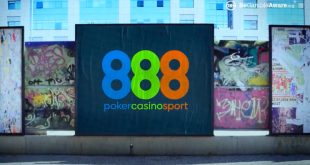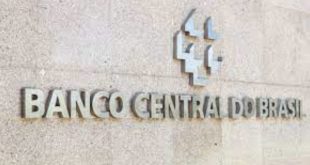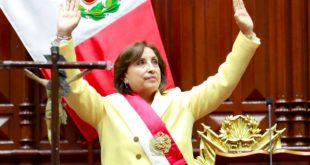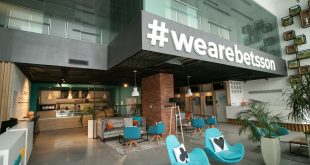Betsson AB CEO Pontus Lindwall insists that the global gaming group has ‘not shut the door’ on the Netherlands despite withdrawing its licence application there.
The CEO addressed investors in a conference call this morning, alongside Chief Financial Officer, Martin Öhman, providing updates on cross-market developments and investments following the announcement of ‘all-time high’ revenues in H1 2023.
Mapping Europe
Of particular significance was Betsson’s decision to withdraw its application for a operating licence in the Netherlands, which has emerged as one of Europe’s most prominent markets. The country’s gambling authority, the Kansspelautoriteit (KSA), projects growth of between 13%-15% per year.
Lindwall explained: “The decision was based on significant delays in the licensing process and resource allocation considerations, given the current attractive product pipeline for Betsson in other markets. The group will still maintain the possibility of reapplying for licences in the future.”
Addressing analyst’s questions, Lindwall further elaborated: “We withdrew the application because we had been in the application process for over a year now and it’s been consuming some resources that we want to allocate to other projects where we see higher growth potential for the time being.
“This doesn’t mean we have shut the door on the Netherlands for the future, and so for the time being we will not be divesting any assets we have in the Dutch market.”
Outside of the Netherlands, Betsson remains focused on other European markets, particularly in Belgium where the group has partnered with French firm Groupe Partouche and acquired sportsbook operator BetFirst.
BetFirst is active in Belgium both online and offline, whilst publicly listed Groupe Partouche operates land-based venues in France and Switzerland and has an offline licence in Belgium which Lindwall explained ‘can be extended to an online casino licence’.
The deal between Groupe Partouche and Betsson will see the duo distribute online casino games in the country. Betsson earlier outlined that online casino has become an increasingly important part of its business, with revenue increasing 35% to €165m.
“With such a licence combined with the licence held by BetFirst, the full range of online casino products can be offered to the Belgian market,” Lindwall continued.
“Subject to the required licences being granted by the Belgian regulator, the aim is to launch the online casino offering in Belgium in the latter part of 2023.”
Lindwall elaborated that the takeover of BetFirst and partnership with Partouche serves to “enable BetFirst to offer the casino in Belgium, which they haven’t been able to do so far, it’s an extension of the offering and we’re optimistic about that”.
However, he asserted that no decision has been made on whether to integrate BetFirst into the Betsson PAM and sportsbook yet.
Crunching the numbers
H1 has also seen Betsson engage in significant investment. Lindwall broke down that the focus of this has been on geographical expansion, product strengthening – such as adding new sports and markets to its sportsbook product, notably meeting increased demand for esports – and development of its app in Sweden and Malta.
Despite this, as one investor noted, marketing spend has decreased. Explaining the group’s fiscal approach to marketing, Lindwall asserted that there is no change in our strategy’.
He added: “We want to maintain our high growth which I think is exceptionally strong and is based on marketing investments, but the marketing investments will differ between quarters depending on what kind of activities are ongoing and availability in certain markets, and things like that. Our strategy remains.”
In its report, Betsson detailed revenue growth of 27% to €237m, split between €170m from B2C operations and €65m from its B2B activities. On the call, Öhman provided a deep dive into a market-by-market breakdown of the group’s finances.
Betsson has reported all-time high revenue from Denmark derived from both sportsbook and casino, whilst casino has also been a key growth driver in Argentina and Finland. Colombian growth, meanwhile, came from sportsbook, with Latin American revenue rising by 13% to €51m.
He did acknowledge that Norwegian revenue dropped due to compliance with regulatory requirements, but still accounts for 22% of group-wide revenue, whilst German performance continues to decline due to market restrictions.
Additionally, active customer numbers decreased 10% year-on-year but are up from Q1 and this is attributed to ‘changes in the offering in the LatAm region’.
Öhman remarked: “We need to find the right customer acquisition strategy and make the offering more sustainable in the long-run, which is part of our ongoing work to improve our operations across the business and especially in new markets.”
Lastly, Lindwall offered a regulatory update on the group’s performance, anticipating forthcoming changes in Peru – where a bill is awaiting sign-off from President Dina Boluarte – whilst in Finland plans to replace the Veikkaus Oy monopoly with a partial licence system was also highlighted.
Norway has proven to be a thorn in Betsson’s side lately, with the Norwegian Gambling Authority (NGA), Lottstift, issuing a cease and desist order against its BML Group subsidiary.
Lindwall explained that the firm has undertaken efforts to limit the site’s appeal to Norwegians, such as displaying currency in euros rather than NKK, and that the cease-and-desist order has now been suspended.
The CEO concluded: “Looking ahead we maintain our focus on profitable growth, and the third quarter has started well with average daily revenues up 20% in comparison with average daily revenues in the third quarter of 2022. We are optimistic for the second half of this year.”









